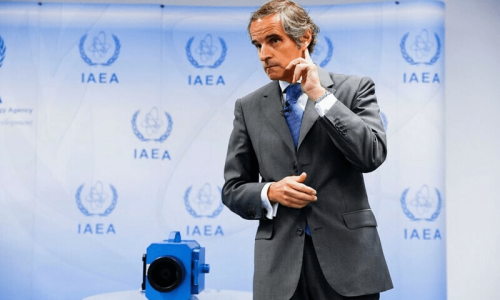RIYADH, Dec 20: Amid ever-worsening economic news, rising stockpiles and forecast that US oil consumption will be virtually flat for 20 years, oil markets continued to tumble struggling in mid $30s despite Opec’s largest-ever single production cut of 2.2 million barrels a day.
Opec itself is to be blamed for this lack of response, for its past record in compliance has not been exemplary.
Opec members’ fractious relationships have made it difficult to control supply, and thus price, in both good times and bad, say Edward Chow, senior fellow at the Washington-based Centre for Strategic and International Studies’ Energy Security Programme.
“They’ve been riding a roller coaster rather than managing supply,” Chow added.
Although a cut was very much round the corner, the Opec decision meant lowering output by record nine per cent to 24.845 million bpd.
Important non-Opec members also have hinted at chipping in. Russia cut oil exports by 350,000 bpd last month and may reduce supply a further 320,000 bpd next year if prices remain weak, Russian Deputy Prime Minister Igor Sechin told Opec ministers during opening speeches at a meeting in Algeria.
Other non-Opec producers, including Kazakhstan, may also trim its production, Sechin added. Azerbaijan is also considering lowering production by as much as 300,000 barrels a day, Azeri Energy Minister Natig Alivev informed the meeting.
Opec has not faced such a challenging environment since at least the 1980s. In the space of six months, the oil market has been turned on its head.
Only some six months ago, some analysts forecast oil at $200 a barrel and companies were scouring the earth for new places to drill. Now no one really knows how low prices may fall.
“It’s a classic - if extraordinarily dramatic - cycle,” said Daniel Yergin, chairman of Cambridge Energy Research Associates and author of “The Prize,” a history of the oil business. “Prices have come down so far and so fast that it’s become a shock to the supply system.”
During a stampeding bull market up to July this year, investors, rather speculators, were convinced that tight supply demand fundamentals could be exploited as they built up a large net-long-term position in crude oil futures from 2004 onward.
Every scrap of geopolitical friction was seized upon to push prices higher - ranging from intractable conflicts in Nigeria and Iraq, to shorter term flashpoints of hijacked ships in the Gulf of Aden to the death of Benazir Bhutto, all of which supposedly drew supply-demand fundamentals closer together.
But that was before the global financial meltdown. All of a sudden, banks were seen scrambling to ensure they did not become the next “nightmare on Wall Street” by cashing in positions to boost liquidity and realise capital gains.
In the process, geopolitical risks ranging from Iranian threats to block the Strait of Hormuz, Russo-Georgian hostilities, “open war” declared by insurgents in the oil-rich Niger Delta, and even the hijacking of a Saudi Aramco super tanker in the Gulf of Aden, all failed to quell market decline.
Such events merely six months ago would have made prices above $180-mark entirely conceivable.
Simple mathematics is not favouring Opec too. Global oil demand is now set to contract for the first time since the early 80s.
As per the Energy Information Agency of the US, world oil demand will fall by 50,000 barrels per day in 2008 and 450,000 barrels per day next year, led by a 1.2 million bpd contraction in top consumer the United States this year and a further 200,000 bpd drop in 2009.
And besides, the oil cartel also needed to “eliminate” an overhang of commercial oil inventories, which now stand at 57 days of supplies, down to 52 days. “We have five days of excessive stocks that could really lead to a collapse in prices,” the Opec president reiterated, justifying the ‘severe’ cut.
The Chinese dragon, the major driver behind the recent bull-run in the crude markets, is in the meantime, also slowing down. Its oil imports in November hit their lowest level this year. There are also reports that China began filling its third strategic crude oil reserve last month.
About 7.3 million barrels of crude were pumped into storage tanks at the Huangdao base, in Qingdao city on the east coast, adding to reserves built up last year at China’s first two reserve bases.
And the information supports what some analysts have suspected for months: that strong growth in China’s crude oil imports over recent months has been driven in part by stock building rather than demand from refiners.
Compliance thus remains the word to watch.
If Opec can enforce the announced cuts it will definitely have an impact - yet that’s a massive question mark at the moment.
Opec’s president appeared confident in Oran that the group would do its utmost to ensure new restraints were strictly enforced. “I can tell you it’s going to be implemented and it’s going to be implemented very well because we do not have a choice,” said Khelil, also Algeria’s energy minister. “If not, the situation is going to get worse.” And indeed one cannot contest this.













































Dear visitor, the comments section is undergoing an overhaul and will return soon.